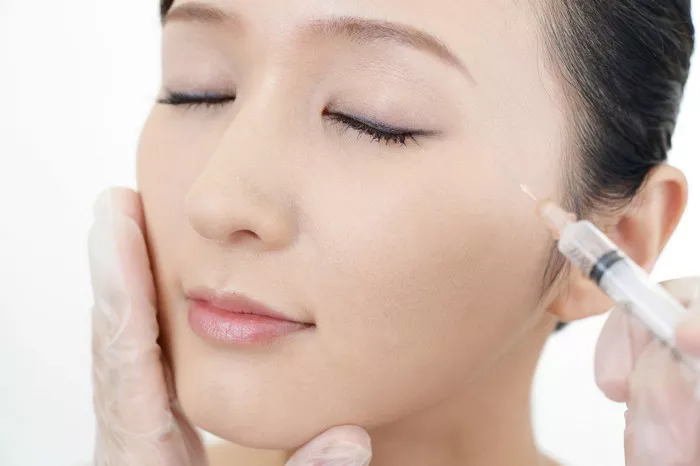Knowing your skin type is essential for creating a skincare routine that works for you. Two of the most common skin types are oily and dry. However, it can be difficult to determine which one you have. In this article, we will explore how to know if your skin is oily or dry and what factors to consider when determining your skin type.
What is Oily Skin?
Oily skin is characterized by an overproduction of sebum, the natural oil produced by the skin. This can cause the skin to appear shiny, especially in the T-zone (forehead, nose, and chin). Oily skin can also be prone to acne and blackheads.
How to Know if Your Skin is Oily
Here are some signs that you may have oily skin:
Shiny skin: If your skin appears shiny, especially in the T-zone, you may have oily skin.
Enlarged pores: Oily skin can cause the pores to appear enlarged.
Acne: Oily skin can be prone to acne and blackheads.
Makeup doesn’t last: If your makeup tends to slide off or disappear quickly, you may have oily skin.
Blotting paper test: If you blot your face with a piece of blotting paper and it appears oily, you may have oily skin.
What Causes Oily Skin?
There are several factors that can contribute to oily skin. One of the main factors is genetics. If your parents have oily skin, you may be more likely to have it as well. Hormonal changes can also play a role in oily skin. During puberty, for example, the body produces more androgens, which can stimulate the sebaceous glands to produce more oil. Other factors that can contribute to oily skin include stress, diet, and skincare products.
How to Treat Oily Skin
If you have oily skin, there are several steps you can take to help manage it. Here are some tips:
Cleanse regularly: Cleansing your skin twice a day can help remove excess oil and impurities.
Use a toner: Using a toner after cleansing can help remove any remaining oil and tighten pores.
Use oil-free products: Look for skincare products that are labeled “oil-free” or “non-comedogenic,” which means they won’t clog pores.
Use a clay mask: Using a clay mask once a week can help absorb excess oil and unclog pores.
Don’t over-wash: While it’s important to cleanse your skin regularly, over-washing can actually stimulate the sebaceous glands to produce more oil.
What is Dry Skin?
Dry skin is characterized by a lack of moisture in the skin. This can cause the skin to appear dull, flaky, and tight. Dry skin can also be prone to wrinkles and fine lines.
How to Know if Your Skin is Dry
Here are some signs that you may have dry skin:
Flaky skin: If your skin appears flaky or has dry patches, you may have dry skin.
Tightness: Dry skin can cause the skin to feel tight, especially after washing.
Dullness: Dry skin can cause the skin to appear dull and lackluster.
Fine lines and wrinkles: Dry skin can be prone to fine lines and wrinkles.
Lack of oil: If your skin doesn’t produce much oil, you may have dry skin.
What Causes Dry Skin?
There are several factors that can contribute to dry skin. One of the main factors is age. As we age, our skin produces less oil, which can lead to dryness. Other factors that can contribute to dry skin include harsh skincare products, hot showers or baths, and cold weather.
How to Treat Dry Skin
If you have dry skin, there are several steps you can take to help manage it. Here are some tips:
Moisturize regularly: Using a moisturizer can help hydrate the skin and prevent dryness.
Use a gentle cleanser: Using a gentle, non-drying cleanser can help prevent further dryness.
Avoid hot water: Hot water can strip the skin of its natural oils, so it’s best to use lukewarm water instead.
Use a humidifier: Using a humidifier can help add moisture to the air and prevent dryness.
Avoid harsh skincare products: Harsh skincare products can strip the skin of its natural oils, so it’s best to avoid them if you have dry skin.
Combination Skin
Some people may have combination skin, which means that they have both oily and dry areas on their face. Combination skin is characterized by an oily T-zone and dry cheeks.
How to Know if Your Skin is Combination
Here are some signs that you may have combination skin:
Oily T-zone: If your forehead, nose, and chin appear shiny, while your cheeks are dry, you may have combination skin.
Enlarged pores: The pores in your T-zone may appear enlarged.
Acne: You may be prone to acne and blackheads in your T-zone.
Flaky cheeks: Your cheeks may appear flaky or have dry patches.
Makeup doesn’t last: If your makeup tends to slide off or disappear quickly in your T-zone, you may have combination skin.
Factors to Consider When Determining Your Skin Type
When determining your skin type, there are several factors to consider. Here are some things to keep in mind:
Genetics: Your skin type can be influenced by genetics. If your parents have oily or dry skin, you may be more likely to have the same skin type.
Age: As you age, your skin may become drier, so it’s important to adjust your skincare routine accordingly.
Hormones: Hormonal changes can affect your skin type. For example, women may experience oily skin during menstruation or pregnancy.
Climate: The climate you live in can affect your skin type. For example, living in a dry climate can cause your skin to become dry.
Skincare products: The skincare products you use can also affect your skin type. If you use products that are too harsh, they can strip your skin of its natural oils, causing it to become dry. On the other hand, if you use products that are too heavy, they can clog your pores, causing your skin to become oily.
Conclusion
Knowing your skin type is essential for creating a skincare routine that works for you. Oily skin is characterized by an overproduction of sebum, while dry skin is characterized by a lack of moisture in the skin. Combination skin is a combination of both oily and dry areas on the face. When determining your skin type, it’s important to consider factors like genetics, age, hormones, climate, and skincare products. By understanding your skin type, you can create a skincare routine that helps keep your skin healthy and radiant.
[inline_related_posts title=”You Might Be Interested In” title_align=”left” style=”list” number=”6″ align=”none” ids=”4909,4941,4906″ by=”categories” orderby=”rand” order=”DESC” hide_thumb=”no” thumb_right=”no” views=”no” date=”yes” grid_columns=”2″ post_type=”” tax=””]

































